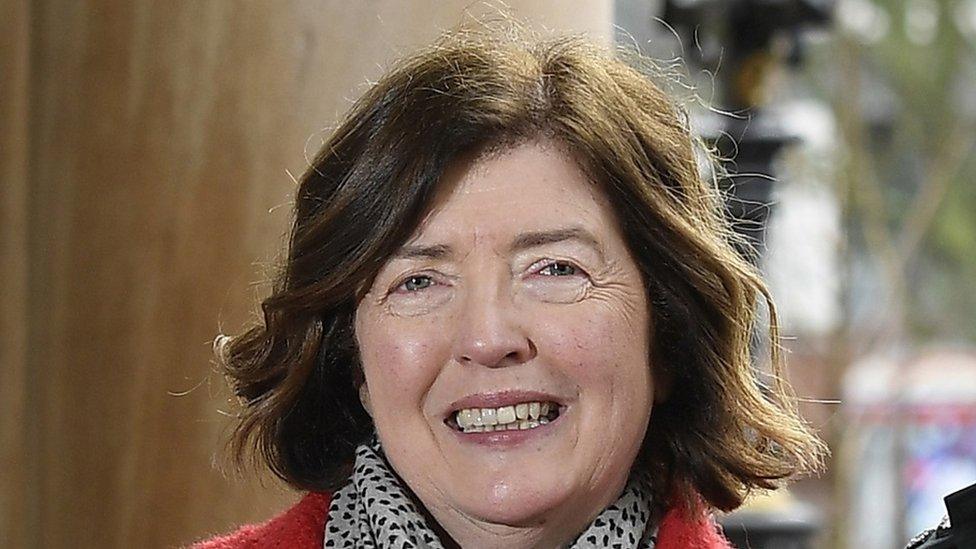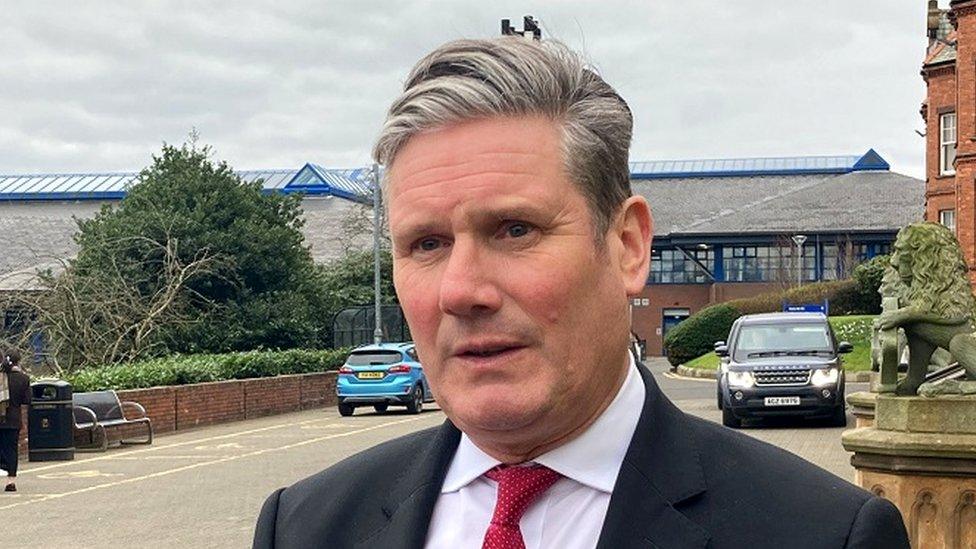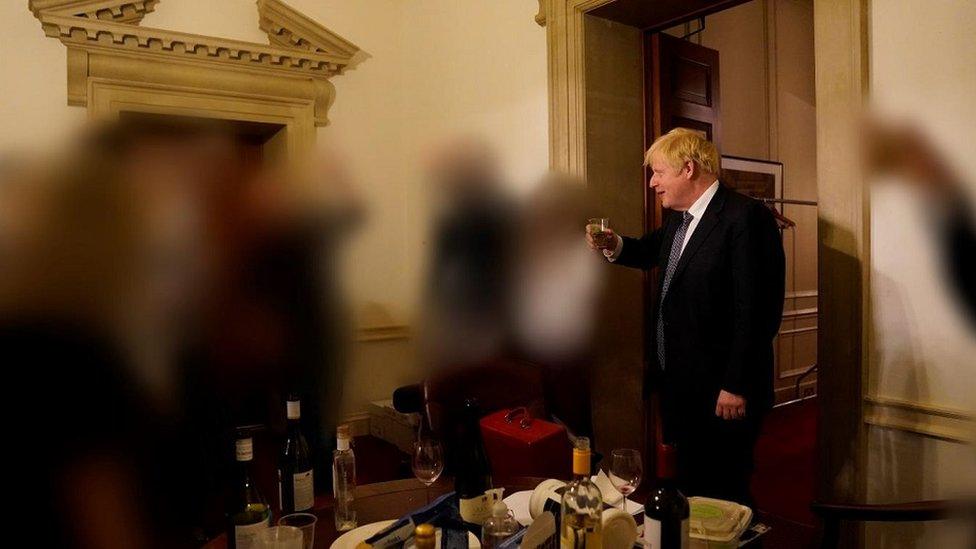Sue Gray: Inside track on an almighty row
- Published

Sue Gray is back in the news: the civil servant who compiled the report into Partygate and Boris Johnson, and has now been offered a job by Labour to work for Sir Keir Starmer.
Has she acted properly? Why are some people so angry about it? And why was there an almighty row in government involving ministers, government lawyers and even the country's most senior civil servant about what they could - and couldn't - say about it?
Was the Sue Gray statement watered down - and why does it matter?
The government published a statement on Tuesday night, external - which said the former civil servant Sue Gray had not cooperated with their investigation into her departure to work for Labour.
For days, sources within government had been briefing reporters that they knew Sue Gray had broken what is known as the Civil Service Code, by talking to Labour while still in post in government, and their statement would say so.
But it didn't.
It was, instead, the dampest of damp squibs, published after quite the bust-up behind closed doors.
What happened?
Drawing up what is known as a Written Ministerial Statement can often be a bit of a palaver, those who do it regularly admit. But this was something else.
"A thousand times worse than normal" is how one person put it.
Cabinet Secretary Simon Case, the most senior civil servant in the country, was involved. As were government lawyers.
In short, the statement couldn't say anything close to what some ministers had hoped it could, because they didn't know enough new stuff.
Government sources are still hopeful in private that Labour and Sue Gray will still face awkward questions.
And they are delighted that Keir Starmer said he was "confident" that Ms Gray didn't break any rules because they are confident that she did.
Downing Street has said it was "obviously disappointing" that Ms Gray chose not to cooperate with the investigation.
But the prime minister's press secretary denied claims by Labour that Mr Sunak is pursuing a "vendetta" against the former top official.
"I think what is more disappointing is that Keir Starmer is in a position where he could clear up very quickly when contact was made by his office or by him to Sue Gray to uphold the integrity of the Civil Service and ensure that it is transparent and open," added the PM's spokesperson.
What are Labour saying?
They claim the whole thing is a distraction tactic to avoid talking about local election issues, "a gimmick set up by ministers purely for political point scoring".
They think Sue Gray's expertise in government will be vital in helping prepare Keir Starmer for government and see hiring her as a coup.

Sir Keir Starmer - Mr Rules?
What is Sue Gray saying?
We are told that Sue Gray's focus is on the Advisory Committee on Business Appointments, external, or ACOBA, which will determine whether she did break any rules and what limitations, if any, to place on her employment by Labour.
We are told Ms Gray has "fully cooperated with" ACOBA and "given them all the details requested".
Dave Penman, the leader of the FDA trade union, which represents senior civil servants, said: "It doesn't surprise me that she wouldn't take part in the process when she's going through Acoba.
"Acoba is really the real deal when it comes to this and who's going to make a decision. And it really should be, because it isn't doing it for political ends. It's doing it based on evidence, and I can understand why she'd prioritise that."
Why does this all matter?
Civil servants aren't supposed to be in the public eye - but Sue Gray has been different.
Partygate is the reason for that.
She was also involved in the vetting process for senior ministers - so will have some knowledge of where the skeletons in government are hidden.

Sue Gray's report lifted the lid on lockdown parties in Downing Street
When it was revealed that Ms Gray was leaving the civil service to join Labour, she became a lightning rod for angry Conservatives, who argued it undermined her credibility and, therefore, the credibility of the Partygate report.
They also argued she broke the rules for civil servants by not declaring her talks with opposition figures.
We don't know for sure when the talks with Labour began because the party won't tell us.
But they have said she wasn't talking to them when she was investigating Boris Johnson and Partygate.
This is also a story about Sir Keir Starmer's judgement. He wants a new chief of staff to get his party ready to take power - if they win a general election.
But so far, Ms Gray hasn't been able to start the job.
It could be a while before she does if Acoba says there should be a cooling off period.
Sir Keir has also built his leadership around being a man who follows procedure - "Mr Rules" as one shadow cabinet colleague described him.
If the rules weren't followed - that reputation could be undermined.
What next?
The big moment in this story is likely to be the Acoba report.
It has information on when talks between Ms Gray and Labour began - and the circumstances.
Labour has promised to follow its recommendations on when Ms Gray can take up a job with the party.
Remember though, Acoba can't block the appointment. Only delay it or impose limitations on it.